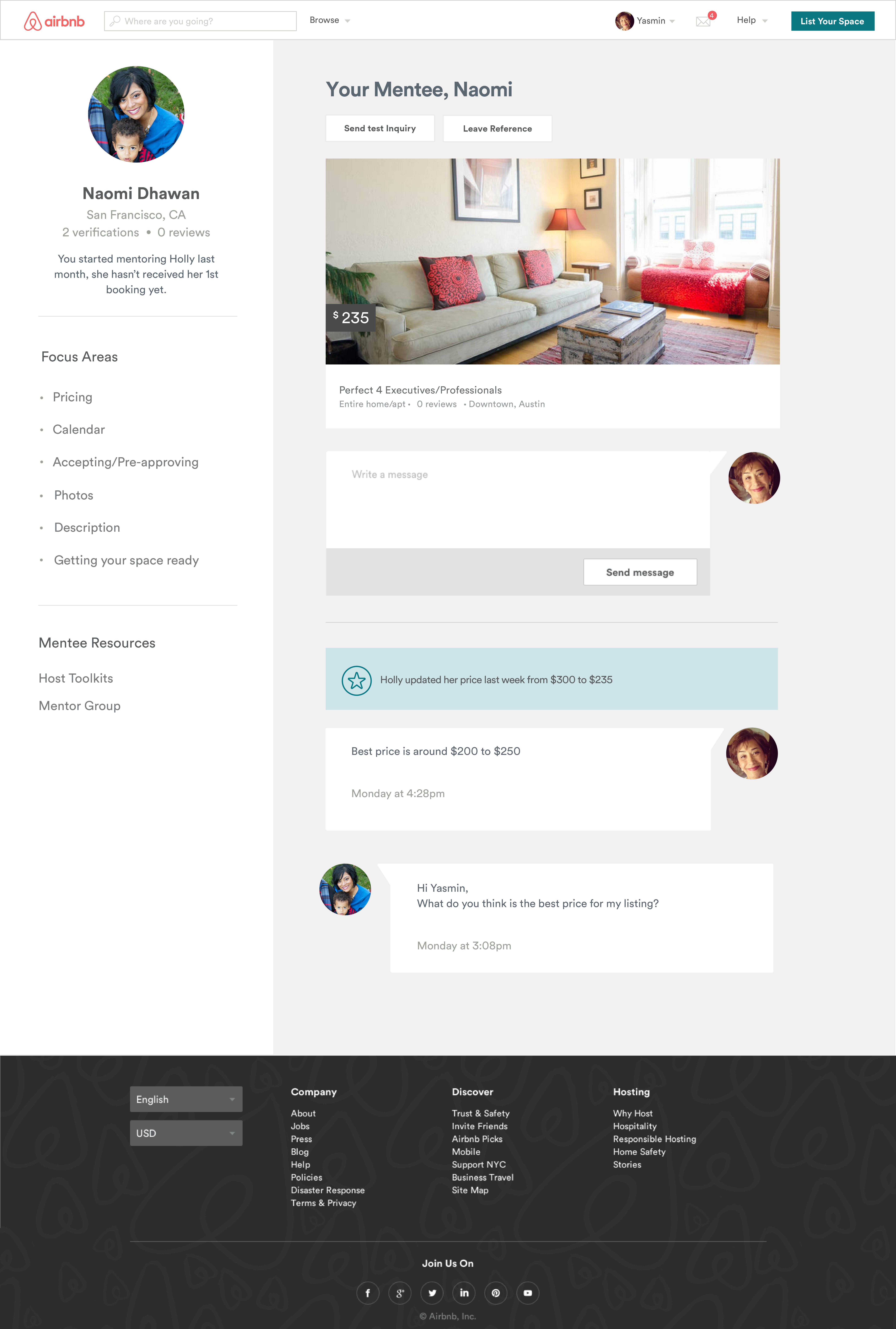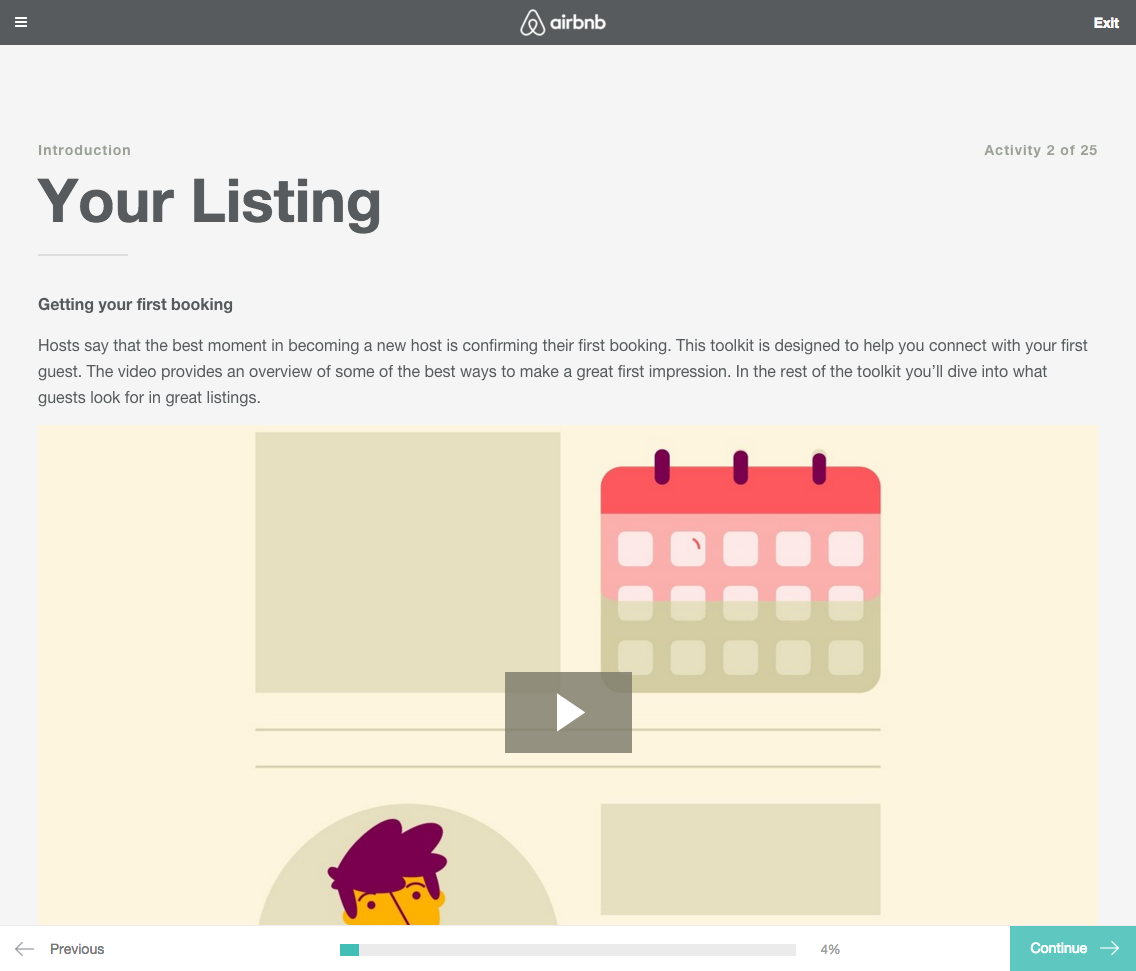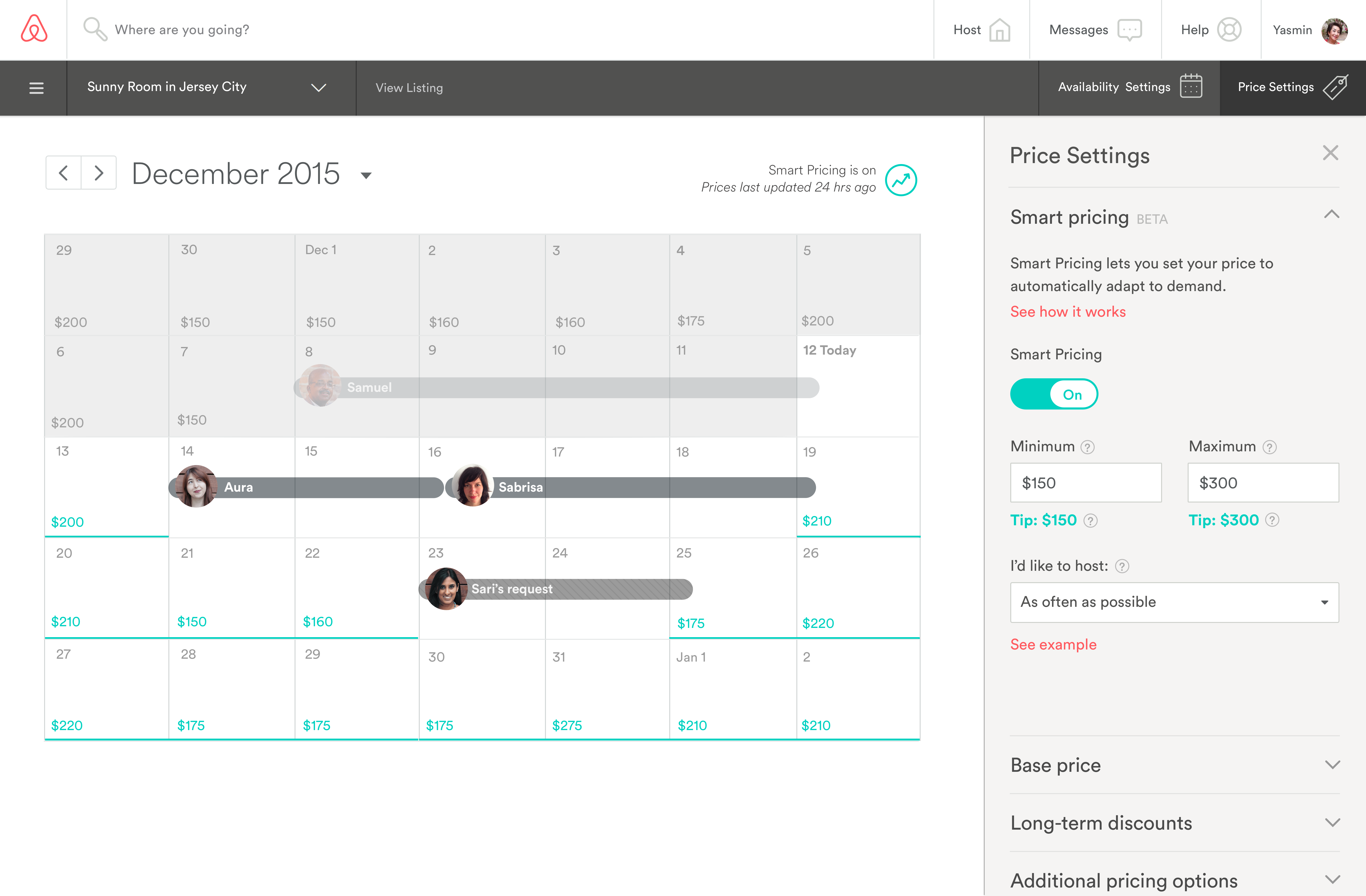Want smarter insights in your inbox? Sign up for our weekly newsletters to get only what matters to enterprise AI, data, and security leaders. Subscribe Now
“Hosts are the lifeblood of the company,” Joe Zadeh, vice president of product at Airbnb, explained, and it’s easy to see why. If this seven-year-old company is to create a truly unforgettable experience for its guests, it needs to have its hosts on board — for the most part, they are the public faces of the company.
To show that it appreciates this fact, Airbnb has debuted new tools at its third-annual host conference aimed at incentivizing these partners to be happy hosts. Zadeh said that it’s all about helping to instill confidence, streamline the process, and to open up new opportunities. Starting today, Airbnb has made available host mentoring, smarter pricing to maximize bookings, third-party solutions to make hosting easier, and an expansion of its Airbnb for Business program.
Helping hosts create great hospitality experiences
Being a host is often easier said than done. The adage “If you build it, they will come” does not always hold true with listings. So Airbnb’s team has created ways to reassure hosts and make them feel secure in what they’re doing. The first offering is regarding the onboarding process. With host mentoring, new hosts can be paired with an experienced one and gain the knowledge needed to be successful and create a great hospitality experience.
Mentors make themselves available for new hosts, answering all host-related questions until the first booking has been made. In return for their service, Airbnb will provide $250 in travel credits to mentors for every 10 new hosts they help. Zadeh said that this program is rolling out in 22 markets around the world. Mentors will be paired with new hosts who have similar listings in their town or city. During its pilot program, the company worked with 25 mentors and 55 mentees (3 mentees per person), which resulted in some receiving their first booking within three days.
In order to be a mentor, Airbnb said that hosts must have an active listing with at least five completed trips and must also satisfy requirements for commitment, five-star reviews, response rate, and more.
But this isn’t the only way that Airbnb is leveraging its experienced hosts to help one another out. The company has created a “toolkit” that is essentially a video resource center that appears when the time is right. Produced by Airbnb, the videos are created by hosts to share tales of success and concern to others who may follow the same path. The videos are local, not a blanket video stretched across all markets.
And if videos and mentors aren’t enough, hosts can express their frustrations and concerns to others in an Airbnb “community center,” which is a virtual meeting place built on top of the company’s Groups feature (which shuttered in February — Zadeh told us that only 13 percent of hosts really used it). This online destination is designed to facilitate conversation and let hosts share stories, ask questions, bond with each other, and get tips. Think of it as a private social network where you can build a profile, message others, and more.
In the aftermath of Airbnb’s victory over Proposition F in this month’s election in San Francisco, the company announced that it would be mobilizing its hosts to move the homesharing movement forward. Could this community center be a place for such organization? Zadeh told VentureBeat that it’s “not the intention to include policy in mind. It’s not meant to be a political platform, but about how to be a great host.” However, he didn’t deny that political rhetoric and discussion could slip into the site eventually.
Streamlining the hosting responsibilities
The next step after making its partners feel comfortable being hosts is to make it easier to be one. To accomplish this, Airbnb has launched new services and integrations aimed at putting a host’s focus on serving customers, not on the work needed to land customers.
Simply setting up an Airbnb listing isn’t enough to guarantee that someone will book it. Just like the hotel industry, hosts have to adjust their pricing in order to make it competitive with nearby properties. But spending every waking moment dealing with price changes like you would with your Google AdWords account just isn’t efficient or pleasant. So Airbnb has rolled out Smart Pricing, which is an evolution of its Price Tips feature. The service will not be just providing suggestions, but also using predictive algorithms to best price a listing.
Zadeh explained that hosts can set a minimum and maximum price they’re willing to charge, along with the number of days. Then the algorithm takes over and modifies the pricing based on that criteria. The system looks at multiple factors, pulling from internal Airbnb data, aimed at helping to meet the host’s goal of booking their homes while getting the most money. All pricing is adjusted every day, and hosts can look at pricing four months into the future. If they’re not satisfied with Smart Pricing, hosts can disable it and all the prices will revert to the prior state like nothing had happened.
 Once you’ve secured the booking, the next challenge Airbnb wants to solve for hosts is how to make the check-in process easy. In order to overcome the operational challenges of hosting, the company has unveiled host assist, a program that utilizes technology to expedite the check-in process. Most hosts, Zadeh explained, like to check in their guests, but have full-time jobs, so how do they make it all work out? This is where technology will come in, as Airbnb has opened up its API to third-party hardware devices to easily facilitate keyless entry and key exchange.
Once you’ve secured the booking, the next challenge Airbnb wants to solve for hosts is how to make the check-in process easy. In order to overcome the operational challenges of hosting, the company has unveiled host assist, a program that utilizes technology to expedite the check-in process. Most hosts, Zadeh explained, like to check in their guests, but have full-time jobs, so how do they make it all work out? This is where technology will come in, as Airbnb has opened up its API to third-party hardware devices to easily facilitate keyless entry and key exchange.
At launch, hosts can connect their Airbnb accounts with the August Lock, Kevo, Lockstate, and Key Cafe. This will help guests easily access homes without having to deal with the hassle of coordinating check-in times. Zadeh said that support for the Nest and Yale Locks, Unikey, and Danalock will be added in the future.
Managing guest stays has also been enhanced with an updated host dashboard. Available for mobile devices, it will let hosts see everything important to them, showing more upfront information and personalizing it for how you want it displayed, either daily or monthly. Data included are pending requests, upcoming guests, alerts, and reviews — basically, it’s a CRM for your listing, accessible right from a tablet or phone.
Going after the next travel market
While most people probably associate Airbnb with consumer travel, a growing number of companies allow their employees to stay in a listed property. A $300 billion market, the business travel space is certainly a lucrative area for Airbnb to stretch into. So how can it convince more companies to abandon the traditional pattern of booking hotels for conventions and events and opt for something more homey?
Zadeh said 10 percent of Airbnb travel is already for business, and those that stay in one often do so because they want to be in a local neighborhood, with coffee shops, off the beaten path. However, business travelers have some requirements, such as reliable Wi-Fi, a place to use their laptop, and basic items such as an iron, hangers, and hair dryer.
Instead of having to compete against dozens of listings in their city, Airbnb wants to make it simple for hosts to stand out when they want to appeal to business travels. It has expanded its Airbnb for Business program to include a certification service that will identify listings as “Business Travel Ready.” Those that have this label offer all the amenities that a business traveler will need, including 24-hour check-in and a policy against host cancellations within seven days.
Hosts of “Business Travel Ready” listings will need to have 5-star ratings for at least 60 percent of their primary reviews, cleanliness reviews, and accuracy reviews. They’ll also be responsive within 24 hours to booking requests 90 percent of the time. Only those that offer an entire home or apartment with no pets or smoking will qualify. While it’s calling out these listings as business travel-friendly, it’s worth noting that Airbnb does not endorse these listings, so guests should be aware that they may not have been vetted by someone from the company.
Zadeh said that those that qualify should be receiving an email with a link to enroll in this program. They’ll have to complete a questionnaire to verify that they meet the requirements. The resulting badge isn’t permanent, as it will be contingent on guest reviews.
“Our team has spent countless hours working with hosts through feedback sessions, research and testing, to understand their needs, which led us to build a suite of tools that provide tailored insights to help our hosts and meet their goals,” said Zadeh. “This product suite simplifies many aspects of being a host and allows them to focus on what they do best — provide truly great hospitality.”
For Airbnb, it has been working to make sure that it provides a system that really works for hosts. In the early days, it didn’t, which caused the company to have to make some corrections, including adding better trust and safety features. Eventually it caught onto the mobile game and launched dedicated host products on phones and tablets before debuting these “smart tools” today.
Zadeh shared that it was important for what Airbnb is doing to be truly personalized, because each host is in a different stage of their journey; in order for tools to be adopted, they have to be very personal. He was adamant that Airbnb doesn’t operate in a vacuum, but instead collaborates with hosts to make products that work for everyone.
All of these tools and capabilities are now available worldwide.






